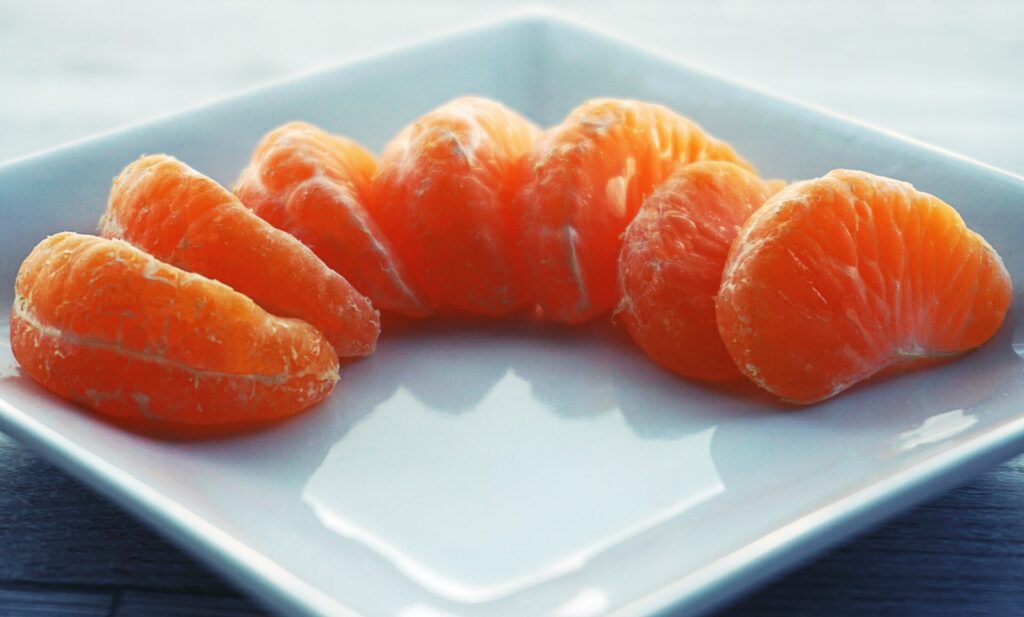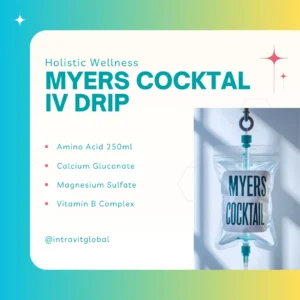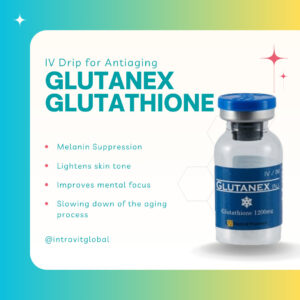How to Maximise Your Vitamin C Absorption
Table of Contents
Introduction
Vitamin C, often hailed as one of the most essential nutrients, plays a critical role in maintaining overall health. From boosting your immune system to supporting skin health, this powerful antioxidant is a must-have in any balanced diet. But did you know that how you consume vitamin C-rich foods can significantly impact how much of this nutrient your body absorbs? In this guide, we’ll explore the best ways to maximise your vitamin C absorption, focusing on “vitamin C foods” and “foods high in vitamin C.”
What is Vitamin C?
Vitamin C, also known as ascorbic acid, is a water-soluble vitamin that is crucial for several bodily functions. It helps in the synthesis of collagen, absorption of iron, and the maintenance of cartilage, bones, and teeth. Unlike fat-soluble vitamins, vitamin C isn’t stored in the body, meaning you need to consume it regularly. The daily recommended intake varies depending on age and gender but generally falls between 65 to 90 milligrams per day for most adults.
Why Vitamin C Absorption Matters
While it’s clear that vitamin C is essential, the body’s ability to absorb this nutrient can influence how effectively it works. Vitamin C absorption isn’t just about how much you consume; it’s about how much your body can actually use. Optimal absorption can enhance immune function, improve skin health, and offer protection against oxidative stress, among other benefits. Therefore, understanding how to maximise absorption is crucial, especially if you rely heavily on foods high in vitamin C.
Vitamin C-Rich Foods
When we talk about vitamin C foods, the first thing that comes to mind is citrus fruits like oranges and lemons. However, many other foods are equally rich in this nutrient. Here’s a closer look:
- Citrus Fruits: Oranges, lemons, limes, and grapefruits are among the most well-known sources.
- Berries: Strawberries, raspberries, and blueberries are excellent options.
- Vegetables: Bell peppers, broccoli, and Brussels sprouts are surprisingly rich in vitamin C.
- Tropical Fruits: Kiwi, papaya, and pineapple are other fruits that boast high levels of vitamin C.
Incorporating a variety of these foods into your daily diet ensures a steady intake of this vital nutrient.
Factors Affecting Vitamin C Absorption
Several factors can influence how well your body absorbs vitamin C. The acidity (pH levels) of your stomach plays a significant role; a more acidic environment enhances absorption. Additionally, certain nutrients can either boost or hinder the absorption process. For example, the presence of iron can improve vitamin C uptake, while large amounts of sugar can compete with vitamin C for absorption.
Best Practices for Enhancing Vitamin C Absorption
To get the most out of the vitamin C foods you consume, consider these best practices:
- Combine with Iron-Rich Foods: Iron and vitamin C have a synergistic relationship, meaning they work better together. Pairing vitamin C foods with iron-rich options like spinach or red meat can significantly enhance absorption.
- Opt for Fresh and Raw: Vitamin C is sensitive to heat and light. Consuming fruits and vegetables fresh and raw helps retain their vitamin C content.
- Spread Your Intake: Instead of consuming a large amount of vitamin C in one sitting, spread your intake throughout the day to maintain optimal absorption levels.
Foods That Enhance Vitamin C Absorption
Certain foods and nutrients can further enhance vitamin C absorption:
- Iron-Rich Foods: As mentioned, combining vitamin C with iron-rich foods like lentils, chickpeas, and red meat can improve absorption.
- Vitamin E: This fat-soluble vitamin can work in tandem with vitamin C, helping to regenerate the antioxidant capacity of vitamin E, which in turn supports overall health.
- Probiotics: Maintaining a healthy gut with probiotics can also play a role in improving nutrient absorption, including vitamin C.
Foods That Inhibit Vitamin C Absorption
On the flip side, some foods can inhibit the absorption of vitamin C:
- High-Sugar Foods: Excessive sugar can interfere with the absorption process, as glucose competes with vitamin C.
- Alcohol: Frequent alcohol consumption can reduce the effectiveness of vitamin C absorption.
- Caffeine: High levels of caffeine may also impede vitamin C uptake, especially if consumed in large amounts.
Balancing your diet by minimizing these inhibitors can help you get the most out of the vitamin C foods you eat.
The Impact of Cooking on Vitamin C Levels
Cooking can have a significant impact on the vitamin C content of foods. Since vitamin C is sensitive to heat, cooking methods like boiling can reduce its levels by up to 50%. To preserve the most vitamin C:
- Steam or Microwave: These methods are better at preserving vitamin C compared to boiling or frying.
- Consume Raw: Whenever possible, eat vitamin C-rich foods raw, such as in salads or smoothies.
Supplements vs. Food Sources of Vitamin C
While vitamin C supplements are widely available and can be beneficial in some cases, it’s generally better to get your vitamin C from food sources. Foods high in vitamin C offer additional nutrients and antioxidants that supplements might not provide. However, if you struggle to get enough vitamin C from your diet, supplements can be a good option. Just remember, more isn’t always better—excessive intake of vitamin C can lead to side effects like gastrointestinal discomfort.
Vitamin C and Lifestyle Factors
Your lifestyle can also influence how well your body absorbs and uses vitamin C:
- Stress: Chronic stress increases the need for vitamin C, as it’s rapidly used up during stressful times.
- Smoking: Smokers have lower levels of vitamin C in their blood, so they require higher intake levels to compensate.
- Exercise: Regular physical activity can increase your body’s need for vitamin C, particularly if you engage in intense workouts.
By managing these lifestyle factors, you can help ensure your vitamin C levels remain optimal.
Signs of Vitamin C Deficiency
A deficiency in vitamin C can lead to several health issues, including:
- Frequent Infections: Since vitamin C supports the immune system, a deficiency can make you more susceptible to illnesses.
- Gum Problems: Swollen or bleeding gums are a common sign of low vitamin C levels.
- Skin Issues: Poor wound healing and dry, scaly skin can indicate a lack of vitamin C.
If you notice any of these symptoms, it might be worth reassessing your vitamin C intake.
How to Monitor Your Vitamin C Intake
To ensure you’re getting enough vitamin C, consider tracking your intake:
- Use a Food Diary: Keeping track of what you eat can help you identify whether you’re consuming enough vitamin C foods.
- Apps and Tools: There are several apps available that can help you monitor your daily vitamin C intake, ensuring you meet your nutritional needs.
Vitamin C Myths and Misconceptions
There are several myths surrounding vitamin C:
- Myth: “Vitamin C cures the common cold.” While it can reduce the duration of cold symptoms, it doesn’t cure the cold itself.
- Myth: “More vitamin C is always better.” High doses of vitamin C are not necessarily more effective and can cause side effects.
- Myth: “Only citrus fruits contain vitamin C.” Many fruits and vegetables are rich in vitamin C, not just citrus.
Understanding these myths can help you make more informed decisions about your vitamin C intake.
Conclusion
Maximising your vitamin C absorption is about more than just eating the right foods—it’s about understanding how your body absorbs this vital nutrient and what factors can enhance or inhibit this process. By incorporating a variety of vitamin C foods into your diet, pairing them with complementary nutrients, and being mindful of cooking methods and lifestyle factors, you can ensure you’re getting the most out of this essential vitamin.
FAQs
How Can I Increase My Vitamin C Absorption Naturally?
- To naturally boost vitamin C absorption, combine vitamin C foods with iron-rich foods, eat them fresh, and spread your intake throughout the day.
What Are the Best Foods High in Vitamin C?
- Citrus fruits, bell peppers, strawberries, and kiwi are some of the best foods high in vitamin C.
Is It Possible to Consume Too Much Vitamin C?
- Yes, while vitamin C is generally safe, excessive intake can lead to side effects like stomach upset and diarrhea.
Do Cooking Methods Affect Vitamin C Content in Foods?
- Yes, cooking methods like boiling can reduce vitamin C levels. Opt for steaming or eating raw to preserve more of the vitamin.
Should I Take Vitamin C Supplements or Focus on Diet?
- It’s generally better to focus on diet, but supplements can be useful if you’re unable to meet your needs through food alone.
Checkout our Facebook Page and leave your review about our Health Care Products.
Related Products
-
Vitamin Drips
Myers Cocktail Box – Best IV Drip for Holistic Wellness
£450.00 – £2,000.00 Select options This product has multiple variants. The options may be chosen on the product pageRated 0 out of 5 -
Hot-Sale
Glutanex Glutathione 600mg IV Drip for Antiaging, Melanin Suppression, Antioxidant Skin Brightness Benefits
Rated 0 out of 5£60.00Original price was: £60.00.£50.00Current price is: £50.00. Add to cart -
Vitamin Drips
Nexus Pharma’s ETHICAL Hycobal Vitamin B12 Hydroxocobalamin 5mg/2ml to Elevate Your Energy, Naturally
£25.00 – £175.00 Select options This product has multiple variants. The options may be chosen on the product pageRated 0 out of 5 -
Vitamin Drips
Masi Injection Magnesium Sulfate 0.5g/5ml for Skin Repair and Rejuvenating Regeneration
£20.00 – £75.00 Select options This product has multiple variants. The options may be chosen on the product pageRated 0 out of 5





